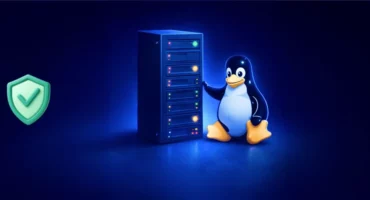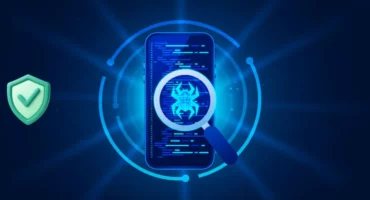Obfuscated VPN: What it is and why you might need it
If you’ve ever tried to use a VPN in a country where it’s restricted — or noticed that some websites block VPN traffic altogether, then you’ve probably run into VPN detection systems. A virtual private network (VPN) is a tool that encrypts your internet traffic, hides your IP address, and provides protection online by enhancing your privacy and security. VPN services are commonly used to safeguard sensitive information and maintain privacy during internet use. That’s where obfuscated VPN technology comes in. It’s a smart way to hide the fact that you’re using a VPN at all.
But before we dive into how it works and why it matters, let’s make one thing clear: not every VPN can beat censorship or bypass deep packet inspection (DPI). VPN blocking firewalls and advanced detection methods can identify and block standard VPN traffic, especially in restrictive environments where internet use is heavily monitored. You need a service that supports obfuscation protocols. And this is exactly where VeePN steps in.

Why choose VeePN with obfuscated servers
VeePN offers advanced VPN features that work even in heavily restricted environments, and that includes obfuscation. VeePN has put significant effort into making its obfuscation features both user-friendly and highly effective, minimizing how much effort users need to bypass restrictions. Here’s what makes VeePN a smart choice:
🛡️Stealth mode technology: VeePN uses stealth protocols that disguise VPN traffic as regular HTTPS traffic. This allows you to bypass censorship in countries like China, Iran, and Russia without raising red flags.
🛡️AES-256 encryption: Your traffic stays encrypted with military-grade AES-256-bit encryption, so even if someone manages to intercept it, they won’t be able to read or trace it.
🛡️Kill Switch for total safety: If your VPN connection drops for any reason, VeePN’s Kill Switch automatically cuts off internet access to prevent data leaks — keeping your identity and location hidden at all times.
🛡️No Logs policy: VeePN doesn’t track or store your browsing data, ensuring full privacy even while using obfuscated servers. You stay invisible — both online and in our records.
🛡️Wide server network: With over 2,500 servers in 60+ countries, including support for obfuscation in restricted regions, you can unblock content or apps from anywhere.
🛡️Obfuscation features and specialty servers: VeePN offers obfuscated servers as part of its specialty servers lineup. These obfuscation features are specifically designed to disguise VPN traffic, helping you bypass restrictive firewalls and network censorship with ease.
Try VeePN risk-free with a 30-day money-back guarantee.
What is an obfuscated VPN?
Obfuscated VPN provides a disguise to your VPN traffic so that it can look like typical Internet traffic. Traffic in a VPN will typically exhibit certain patterns, otherwise detectable via deep packet inspection systems. These traffic patterns are what make systems to detect use of VPN. When they detect the VPN protocols in those systems they may either block your connection or slow it down.
By obfuscating, those patterns are removed. The impact of VPN obfuscation is that it camouflages your traffic to appear as the normal HTTPS traffic and hence it is extremely challenging to identify the fact that you are using a VPN in the first place by firewalls and ISPs. The technique is specifically intended to hide the use of VPN by manipulating traffic patterns to render VPN connections less detectable or blocked straightforwardly.
Why would you need obfuscation?
Obfuscated VPNs are not a necessity 24/7 by everyone. Otherwise, in some cases, they are necessary. When you are connected via a VPN, it is more important that your internet traffic is encrypted and secured, particularly in case of restrictive environments where privacy and access are threatened. This is when it becomes worthwhile:
😻Circulating around harsh censorship: Strict censorship prevents regular VPN connections in such countries as China, UAE, or Iran. The authorities are usually interested in VPN use and, therefore, obfuscation is needed to slip through the net and enjoy the open internet.
😻Bypassing VPN blocks on websites and apps: Occasionally, various streaming services, social media applications, and online games will block the known VPN IPs. Obfuscation conceals the very use of VPN, not only the IP itself, which will assist you in evading these restrictions.
😻Being off the radar on public or watched networks: Universities, work places and hotel WiFi can throttle or block VPNs. Obfuscated servers have your connection covert, even on networks with extremely high filtering.
😻Avoiding ISP throttling: With a VPN, you can avoid Internet Service Provider (ISP) throttling when it comes to streaming and gaming because an obfuscated VPN puts a stop to detection so you can stream and play at higher and free speeds.
How does obfuscated VPN work?
Obfuscated VPNs use special tools and encryption tricks to remove the VPN “fingerprint.” VPN protocols, such as the OpenVPN protocol, play a crucial role in obfuscation techniques by disguising VPN traffic to evade detection by firewalls and Deep Packet Inspection (DPI). They often rely on protocols like:
🫣OpenVPN with obfuscation scripts (e.g., obfsproxy)This wraps VPN traffic in another encryption layer, making it look like normal SSL traffic. The OpenVPN protocol can be configured in VPN settings to enable obfuscated servers, helping users bypass network restrictions.
🫣Shadowsocks or SOCKS5 proxies:These tools are lightweight and fast, designed for bypassing firewalls without being detected.
🫣Stunnel or TLS tunneling: Adds a TLS/SSL layer that mimics standard HTTPS communication, making VPN packets blend in with other encrypted traffic.
Once the VPN connection is made, an encrypted connection is created and the data packets are masked so that they look like normal internet traffic. The raw information in each data packet can be rendered useless with obfuscation techniques, such as the use of the XOR cipher, so that DPI systems will not know the use of VPN.
VPN signatures are obfuscated and the obfuscated servers, which conceal VPN traffic, operate by obfuscating the VPN protocol and making the VPN-traffic indistinguishable to regular traffic to avoid detection. A second server may be employed in a Multi-Hop or Double VPN approach in which the traffic travels through multiple servers to further obfuscate VPN use and improve privacy.
Obfuscation will enable the VPN to connect when the normal VPNs will not connect especially in the restricted environments. To conclude, VPN obfuscation work and obfuscation techniques are critical in the process of circumventing the restrictions and having safe and anonymous access to the internet.
Obfuscated VPN vs regular VPN
Here’s a quick side-by-side to highlight the differences:
So while a standard VPN works just fine in most countries, an obfuscated VPN becomes your best bet when facing aggressive censorship or VPN bans.
Streaming services and obfuscated VPN
Streaming services have a reputation of disallowing the use of VPNs to impose geographical limits. When you connect to a normal VPN, these sites tend to identify and filter VPN traffic so you will not be able to watch your preferred programs and movies in other countries. That is where obfuscated VPN servers step in.
Obfuscated servers use normal Internet traffic to conceal VPN traffic so that the streaming services find it extremely difficult to know that you are using a VPN. Obfuscated VPN servers can assist you to circumvent VPN blocks, and watch streaming content that would have not been accessible otherwise in your country by concealing the distinctive VPN traffic patterns.
It should be mentioned, though, that not every obfuscated VPN server is equally efficient to the detection efforts of streaming services. Other websites are able to prevent the use of VPN through sophisticated means such as IP blacklisting and traffic analysis. In such situations, you may want to select a VPN provider that has a wide network of servers and regularly changes the IP address to have a higher probability of getting restricted content. To get optimal outcomes, one should find a VPN provider that frequently changes its obfuscated servers and is dedicated to unlocking streaming services.
Internet speed and performance with obfuscated VPN
Although obfuscation VPN servers add an additional level of privacy and contribute to circumventing VPN blocks, they may affect your internet speed and, in general, performance. The data packet modification process and the implementation of more encryption layers demand more processing power and bandwidth which may lead to a slower internet connection speed as opposed to a standard VPN.
The degree of the speed loss is related to a variety of factors, which include your proximity to the VPN server, the quality of the network of the VPN provider, and the efficiency of your internet service provider.
In order to obtain the most optimal internet speed during the use of obfuscated servers, select a VPN provider with fast and stable servers and think about connecting to the servers that are physically located closer to you. Although a normal VPN connection can be more speedy, it might not be as effective in terms of VPN blocks and censorship. Conclusively, speed-security trade-off is worth it to users who must break restrictions and protect their privacy on the net.
Double VPN: Enhanced security with obfuscation
Multi-hop VPN, which is also referred to as Double VPN, goes a step further to enhance your Internet safety and security by checking your Internet traffic through two VPN servers, rather than one. This forms another level of encryption and it becomes even harder that anyone will notice the use of VPN or trace you online.
Combining double VPN with obfuscation, you will obtain the maximum security against VPN blocking, Internet censorship and tracking. Obfuscation and double VPN complement each other to conceal the fact that you are using a VPN and protect your traffic with an extra layer of encryption so that your valuable data is hidden even in the most censored conditions.
This configuration is particularly useful to people, who require accessing confidential data or to evade heavy web censorship, including journalists, activists, or any citizen residing in countries with hostile internet surveillance. When you combine obfuscation and double VPN, you will have the ultimate experience of security, privacy and freedom on the internet.
Beating the Great Firewall: Obfuscated VPN in action
The Great Firewall of China is one of the most sophisticated internet censorship systems in the world, designed to block access to certain websites, streaming services, and online platforms. For users in China and other countries with similar restrictions, accessing the open internet can be a major challenge.
Obfuscated VPN servers are a powerful tool for beating the Great Firewall. By disguising VPN traffic as regular internet traffic, these servers make it extremely difficult for the firewall to detect VPN usage. This allows users to bypass censorship, access restricted content, and communicate freely online, even when facing advanced surveillance and blocking technologies.
Whether you need to access sensitive information, stay connected to global news, or simply enjoy your favorite streaming services, obfuscated VPN servers provide the privacy and freedom you need. For anyone living under strict internet censorship, using obfuscated VPN servers is essential for maintaining online privacy and accessing the unrestricted internet.
Does VeePN support obfuscated VPN?
Yes, VeePN supports obfuscated servers as part of its advanced security suite. Whether you’re trying to access your favorite apps in China or stay anonymous on school WiFi, VeePN’s stealth modes have you covered. This feature is similar to obfuscated servers, which are also designed to help users bypass restrictions and enhance privacy, showing that multiple providers offer specialty servers for these purposes.
With its wide server network, AES 256-bit encryption, and support for multiple advanced protocols, VeePN helps you stay invisible without sacrificing speed or usability. You can even combine obfuscation with features like Split Tunneling or MultiHop for enhanced control.
How to activate obfuscation with VeePN
Activating obfuscation on VeePN is easy and is done through the VPN settings menu:
- Open the VeePN app on your device.
- Go to VPN Settings > Protocols.
- In the VPN settings, select an obfuscated or stealth-compatible protocol (such as OpenVPN + obfuscation).
- To enable obfuscated servers, choose a server in a supported location that offers obfuscation, or use the Multi-Hop feature to route your traffic via Shadowsocks or SOCKS5 proxies for added privacy.
- Connect and enjoy secure, untraceable browsing.
VeePN apps are available on Windows, macOS, Android, iOS, Linux, and browser extensions — so you can stay protected across all your devices.
Final thoughts
If you’re in a place where regular VPNs aren’t cutting it, an obfuscated VPN is your digital invisibility cloak. It helps you break through restrictions, dodge surveillance, and keep your online activity private — no matter where you are. However, always check if VPN obfuscation is illegal in your country, as some places, like North Korea, have banned VPNs entirely.
And with VeePN, you don’t just get obfuscation. You get a full security suite that’s fast, private, and reliable. So whether you’re streaming from a restricted country or accessing blocked apps, VeePN makes it easy and safe.
Try VeePN today and enjoy:
- Unlimited bandwidth
- No Logs policy
- Kill switch protection
- 2,500+ servers in 60+ countries
- 30-day money-back guarantee
Explore all features now and experience internet freedom the way it’s meant to be.
VeePN is freedom
Download VeePN Client for All Platforms
Enjoy a smooth VPN experience anywhere, anytime. No matter the device you have — phone or laptop, tablet or router — VeePN’s next-gen data protection and ultra-fast speeds will cover all of them.
Download for PC Download for Mac IOS and Android App
IOS and Android App
Want secure browsing while reading this?
See the difference for yourself - Try VeePN PRO for 3-days for $1, no risk, no pressure.
Start My $1 TrialThen VeePN PRO 1-year plan








